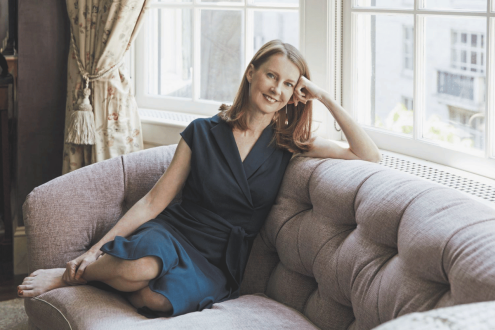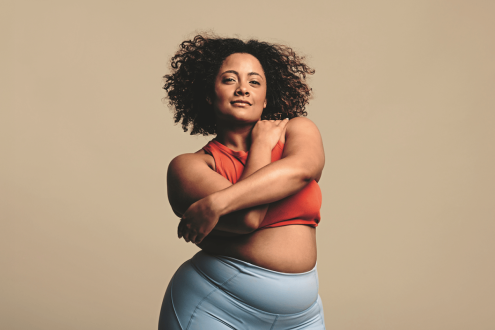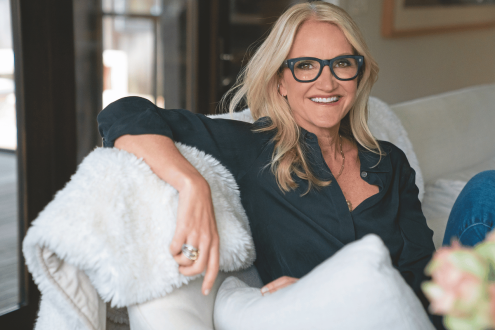How to find what brings you joy and seize it
Learn to say no to what doesn't light you up and seek out experiences that bring you joy, says Annabel Chown

When I was 13, my mother booked me onto a sailing course in Dorset, with a friend who’d been before. I wasn’t keen, but Mum assured me my friend had loved it, so I would too. It rained all week, and I spent most of my time capsizing my dinghy and missing home.
These days, many of my friends are hooked on wild swimming. Some even break the ice on winter mornings at Hampstead Heath’s Ladies’ Pond or Hyde Park’s Serpentine Lake. I’ve tried joining them, but disliked how pondweed, invisible in the murky water, coiled itself round my legs, and the way the cold settled into my bones for the entire day.
My friends might rave about wild swimming and its benefits, whose potency I don’t doubt. But I’ve found my own ways of enhancing wellbeing that feel pleasurable to me – such as yoga, lifting weights, and walks through London parks.
The younger me was more inclined to follow the crowd, however. In my twenties, even on the Friday nights I longed to relax in an oil bath after a full-on week, I’d accompany friends and workmates to Shoreditch pubs and bars. ‘Don’t be boring,’ they’d say, when, by 10pm, I’d try to head off. ‘Come with us to a club.’ Often, I did. Back then, life seemed infinitely long.
But a breast cancer diagnosis at 31 woke me up to just how short life can be. Time felt precious, and investing it in what made my heart sing, important. Now, 20 years later, it still is.
I ask Sophie Cliff, a coach and positive psychology practitioner, and author of the book Choose Joy, whether joy has benefits beyond making us feel good in the moment. She explains how negative emotions, such as anxiety, trigger our flight or fight response and bring us into survival mode, which narrows our thinking. Positive ones such as joy, however, have the opposite effect.
‘Joy broadens our mental capacity,’ she says. ‘Our thinking becomes more creative, we connect better with others, and so our relationships improve. We’re more relaxed. And we’re inclined to take better care of ourselves.
‘It creates a positive upward spiral,’ she adds, ‘whereby joy builds joy. The research has also repeatedly shown it’s a protective factor against burnout.’
But it’s not always easy to even know what brings us joy. We might spend life rushing between work and looking after our family, leaving no obvious windows in which to uncover our own unique flavours of it. Perhaps we believe it’s an indulgence we don’t deserve. Or we might be overwhelmed by the noise of social media, celebrities and friends recommending their favourite books, Netflix shows, hobbies, and holiday destinations. Noise that can drown out the yearnings of that still, small voice within.
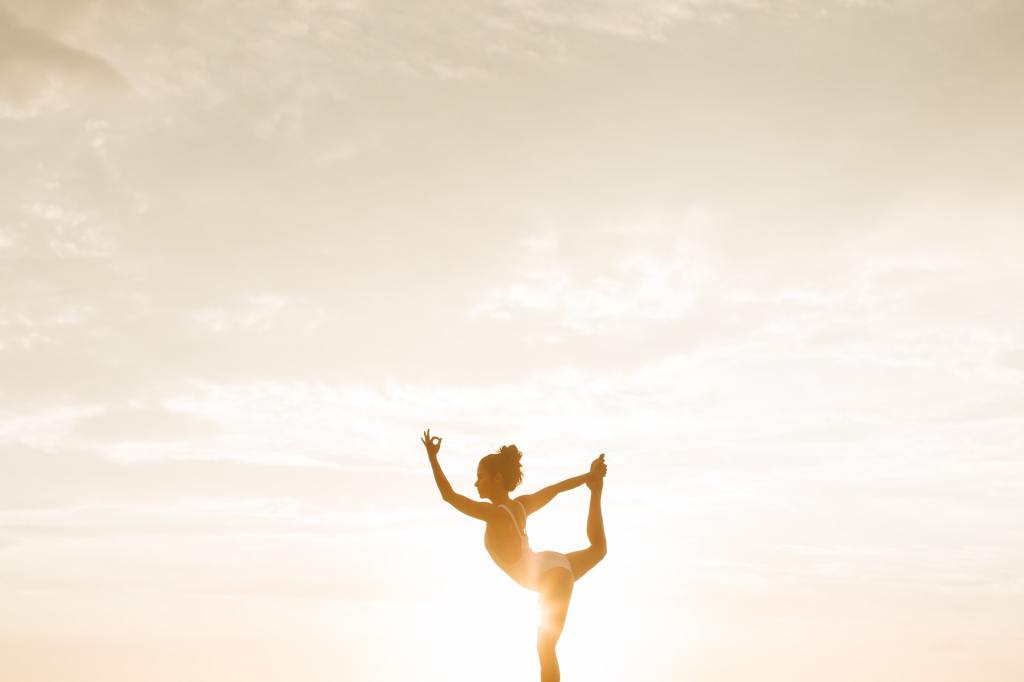
Years ago, I took up hot yoga after reading an article about it accompanied by a photo of a radiant Jerry Hall sitting in lotus pose. I didn’t enjoy the class or the stale-sweat scented room. But, inspired by that photo, I persisted for months. It was only after the heat caused my face to break out in acne that I finally listened to what my body and heart had known all along.
Cliff recommends we start by noticing what already feels good. ‘Is there a favourite part of your day or week? When you do something enjoyable, however small, write it down, so you start to build an awareness of what lights you up. It can also be helpful to remember what you loved as a child; kids are very intuitive. Maybe it was arts and crafts, and now might be the time to try life drawing.’
I ask Cliff how long it’s worth trying something for, so we strike a balance between giving it a chance, yet not investing too much time in the wrong thing, as I did with the hot yoga.
‘If you’ve tried a class, say, five times, and it still doesn’t feel good, perhaps call it a day. We can too easily forget the inherent value of pleasure and insist on gritting our teeth and pushing through. But always take clues from the experience: for example, if you tried yoga and didn’t enjoy the poses but loved the chanting, you might decide that joining a local choir suits you better.’
As the poet Mary Oliver wrote, ‘Joy is not made to be a crumb.’ Yet it can too easily slip to the bottom of our list, relegated to some mythical time-rich future. How do we create that time in the here and now?
‘Start really small,’ Cliff suggests. ‘Diarise one hour a week you set aside for pleasure. And if you’re not sure what to do, tune in and listen to what your body and mind crave. Is it a run? To lie on the grass and feel the sun on your skin? To call a friend? It’s so important to learn to trust our instincts.’
Introducing the Psychologies ‘Balance Your Life’ Journal
I’ve become increasingly well-versed in trusting mine, along with doing my best to carve out time for what lifts my spirits: an early evening solo movie date, while my husband puts our son to bed; a few minutes of meditation first thing; a flat white and almond croissant in a favourite café.
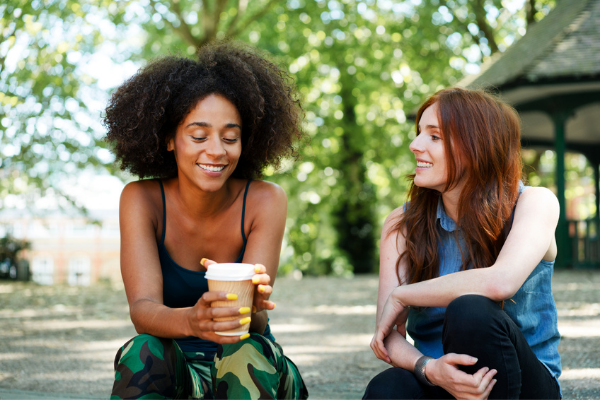
I’m also able to be honest with my husband about my likes and dislikes, inspired in part by his own innate directness. On a recent holiday to Puglia, he told me he found the beach – which I love – very boring. So we spent mornings apart. While he explored local towns with his camera, I reclined on a lounger, savouring a novel and the sound of the sea.
But with friends, I still sometimes find it hard to say no when I don’t want to do something, reluctant to be viewed as selfish or difficult.
‘While the desire to fit in and be liked is very human,’ Cliff says, ‘and we fear being judged if we don’t go along with what others want, we also have to ask what’s scarier: being judged, or letting ourselves down? Do you want to get to the end of your life and think, I didn’t make time for what really mattered to me, because I was too busy saying yes to everyone else?’
‘And explain your why,’ she adds. ‘That way, people are more likely to be understanding in the future.’
I’m practising being more honest with friends, as well as trying to find a middle ground where we can both be happy. Recently, a newish friend wanted to go out for dinner. I explained I’m being mindful about my spending, and asked if she was up for a walk instead. On a warm Sunday evening, we strolled through the fragrant Rose Gardens in London’s Regent’s Park, chatting away.
So how will you seize joy this summer? Do you crave the clatter of glasses and friends’ laughter on a pub pavement at dusk? To wake early and stand barefoot on dewy grass, cup of steaming tea in hand, listening to the birdsong?
To visit a beautiful English garden accompanied by a picnic hamper? Dance the night away in the magical playground of a festival? To amble around a balmy city, enjoying its food and architecture? Summer is short, the possibilities infinite. All that matters is that you say yes to whatever infuses your unique soul with joy.
More inspiration: Imagery meditation: how to visualise happiness
